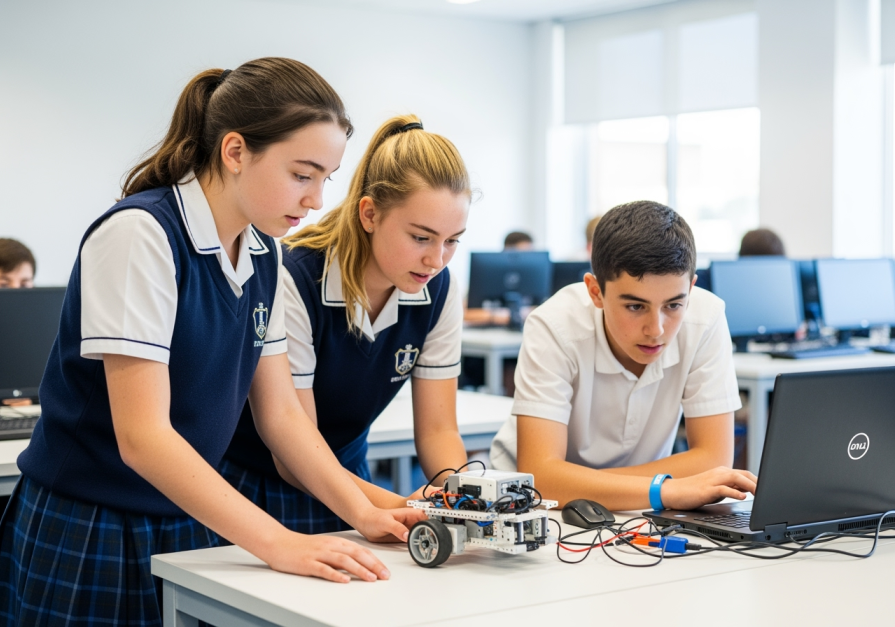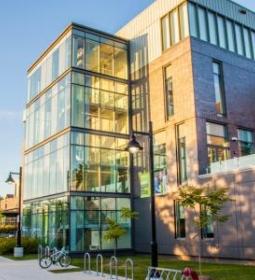Higher education is criticized - the claims that are made against it abroad are essentially the same (and it goes to mastodons like Harvard, Stanford and Cambridge). In this article, SMAPSE experts tried to predict what will happen to the world of higher education in the 21st and what trends will come to the fore.

What's wrong with him: problems of higher education
Outdated system
Graduates leave the walls of universities with formal data that they learned from outdated textbooks, without useful interdisciplinary skills or soft skills. Their skills and knowledge are quickly becoming obsolete: the law of technical acceleration of progress has not been canceled, and in the 21st century, technologies are rushing forward faster and faster, and higher education must keep up with them - but does not come out. The development of curricula is a long matter, so it turns out that the program, they say, began to be developed in 2013, and in 2015, when it is ready to appear to students in all its glory, its informativeness has already faded, the course needs to be improved.
One-sided knowledge
On average, according to modern statistics, a graduate of the 21st century changes 5 professions during his career - but he studied only one! And such "non-universality" pours out sideways: you have to learn new things on the go, gaining information in pieces, scraps, fight in search of a good job: you wanted to be a professional when you graduated, but it turns out that you are still a yellow-haired chick who is struggling trying not to fall in flight.
Excessive academic, lack of "soft" skills
Now the world of higher education is an extremely mobile and fluid structure: it is not enough to pore over textbooks for 5 years to then become a sought-after specialist. You must learn to learn! And very often it is not academic knowledge that comes to the fore, but additional skills:

- creative approach to tasks and problems
- effective time management
- ability to work with information (search, catalog, systematize)
- critical and analytical thinking
- flexibility of mind and readiness for new technologies - up to and including emotional empathy.
And all this must also be taught by universities to their students if they want to produce specialists in demand.
How can these pressing problems be addressed? SMAPSE experts have identified several striking trends that can literally revolutionize and bring higher education to the standards of the future. Let's figure it out!
Interdisciplinarity
As it was before: when education (higher education in particular) was just emerging, people tried to bring order to the chaos around them. They systematized data and surrounded the spheres of science: mathematics, literature, art, natural sciences, technology, and others. Each area independently developed and deepened, and specialists in one area could be perfect profane in another - narrow specialization reigned.
Seeing objects and events from only one angle, we form a narrow view and cannot look at the whole picture. That is why an interdisciplinary approach is already used even in schools: for example, a historical event is studied - and at the same time the literary works of that time, the writers' view of what is happening: subjective and objective assessments are considered on an equal footing. And today the mixing of disciplines can occur freely: for example, humanitarian + technical disciplines!
This gives a deeper, more thorough, truthful perception, helps to find a new perspective (for example, to solve a long-standing problem), actively develops critical thinking. European and American universities are already actively offering their students at least 2 main disciplines (which will be the first to be marked in diplomas) - Russia is still lagging behind and chooses a single main specialty, but seeks to provide many additional ones. courses, electives, related areas and electives.
Active teaching methods, interactivity
As it was before: the professor in the unenlightened years of the Middle Ages and up to the XXI century was a storehouse of knowledge, an indisputable authority. Therefore, the education consisted in the postulate "listen to this clever main thing and remember."

Today, the Internet gives us unlimited opportunities for learning and searching for information, so teachers are no longer the only sources of knowledge. Therefore, interactive learning comes to the fore: discussions, debates, research, exchange of views, practical exercises. The student independently analyzes and draws conclusions, solves real problems and cases - and the teacher only guides him as needed, stimulates, and does not force him to learn.
Of course, this only works fully in small groups - it is difficult to conduct a discussion with the entire flow of 150 people - and it challenges the teachers. They now have to come up with new formats and rebuild, flexibly and quickly changing the form of classes for specific students, group, specialty and topic. A good teacher is not the most famous specialist, but the one who can tell about this specialty so that everyone can hear him.
Freedoms and responsibility
The aspect echoes the previous ones: more and more freedom of choice is given to students, destroying the ossified learning scheme. Students themselves choose which subjects they want to study, how many hours to devote to them, whether to choose more practice, whether to add a related subject. Such a learning trajectory is not only more effective in itself: it fosters responsibility and engagement in students, increases motivation - they realize the value of what they learn and do not feel that they are being taught "out of the blue".
Digitalization, mixed forms and distance learning
It would be strange to ignore modern technologies and techniques in education, would you agree? Modern students live with them for many years, so they should start learning to use them as early as possible. Online platforms, lesson recordings and digital libraries as an addition to the face-to-face format greatly increases efficiency, optimizes time and labor of teachers. It is very popular, for example, to study theory remotely, and practice and pass important exams in person, with someone who can correct and guide you in the right direction. Dry theory goes to a remote location, and in the first place comes creative search, research and exchange of opinions between real people.

Globalization
Of course, the trend is not new, but the coronavirus pandemic has shown how closely all countries are interconnected! Higher education is no exception: the international labor market, the opportunity to work remotely or study from another country in the world - this is globalization.
- The practice of double diplomas is actively developing: he studied in a single undergraduate course - simultaneously received diplomas from America and New Zealand, Russia and England, Great Britain and Singapore
- Graduates of bachelor's programs are increasingly leaving for a master's degree in another country, to another university. This is helped by a huge number of scholarships and grants - depending on the chosen language, you can choose a lot of free master's programs
- International rankings consider universities according to the same criteria, regardless of their "homeland": this encourages universities not to rest on their laurels, but to strive to follow their successful American or English colleagues
- Student exchange programs are a new reality: after entering a US university, you can study a semester in China or Germany. Swiss higher hospitality schools also often offer study options in several countries (campuses of the same network), internship in several European states.
Conclusion - but this is not the end
Yes, all these problems have been brewing for a long time, and solutions have already been searched for - but the COVID-19 pandemic has spurred the best minds: it's time, it's time to navigate the new world and decide which way we will go. Well, if the University of Cambridge decided for the first time in its history (!) To switch to the online format of lectures, then the rest of the players in the educational sector must catch up, otherwise the weak will inevitably fly out of the distance. Conservatism is no longer in trend.







